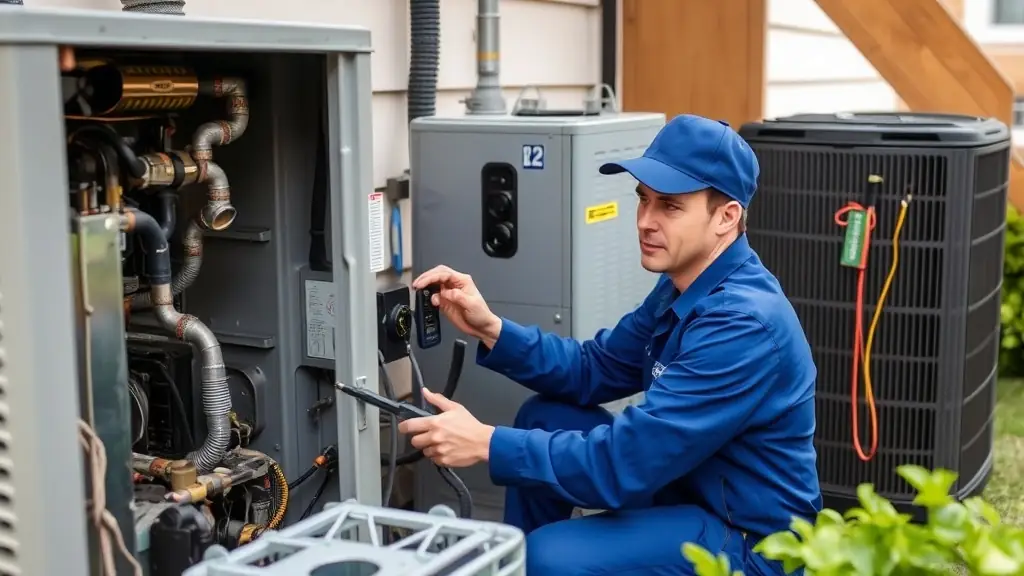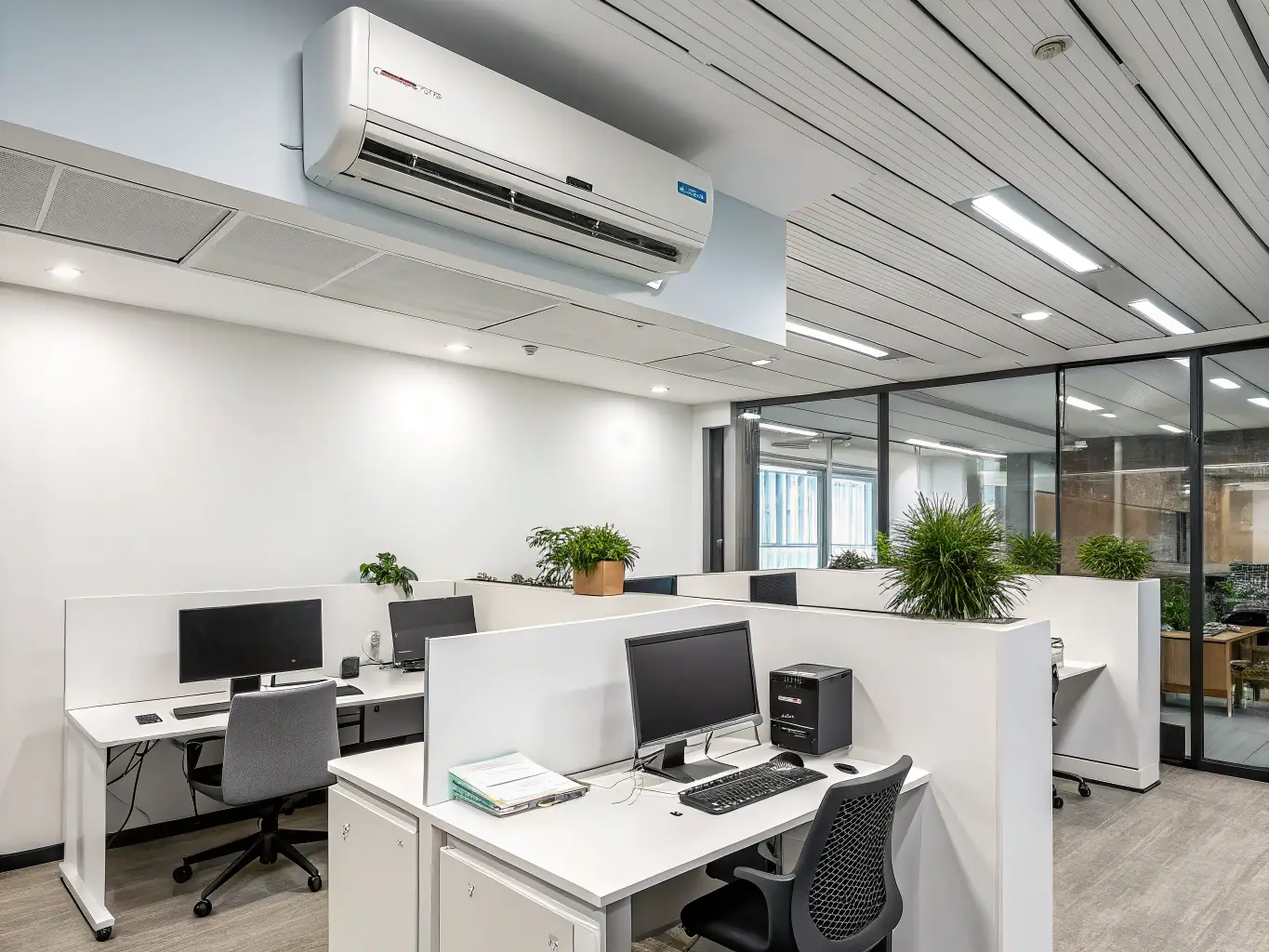Selling your HVAC company is more than just a financial decision—it’s a milestone that represents years of dedication, hard work, and countless service calls. If you want to maximize the reward for all those years, you need to understand how to prepare an HVAC business for sale properly. Many owners assume buyers will see the value immediately, but the truth is different. A profitable exit requires intentional planning, clean records, and a strategy that highlights the strengths of your business.
At BlueExit, we specialize in helping HVAC owners navigate this process step by step, acting as your trusted HVAC Business Broker & Sales partner. Let’s walk through the seven critical steps that will help you sell on your terms and at the highest possible value.
Step 1: Understand Your Valuation
The first step in preparing your HVAC business for sale is knowing what it’s worth. Many owners overestimate or underestimate their company’s value, which can lead to missed opportunities or failed negotiations. A professional valuation considers factors like financial performance, recurring service contracts, customer mix, and industry demand.
Think of valuation as your roadmap—it shows you where you are today and what improvements can boost your company’s worth before the sale. For a deeper dive, you can explore our resource on HVAC Business Valuation, where we break down how EBITDA multiples and recurring revenue influence the final number.

Step 2: Clean Up Financial Records
Financial transparency is one of the most powerful tools you have when presenting your company to buyers. If your books are disorganized, it signals risk. Buyers want to see at least three to five years of clean financial statements, consistent profit margins, and a clear separation of business and personal expenses.
Imagine walking into a house for sale with clutter everywhere. Even if the house is structurally sound, the mess lowers perceived value. The same applies to your HVAC company. The more organized your records, the more confident buyers feel—and confidence translates into stronger offers.
Step 3: Build Recurring Revenue Streams
Recurring revenue is the lifeblood of a strong valuation. Service contracts and maintenance agreements provide predictable cash flow that buyers will pay a premium for. A company that can demonstrate long-term customer relationships through signed contracts shows stability and reduces risk for new owners.
For example, two companies with the same annual revenue can have drastically different valuations. The one with 60% of revenue from recurring contracts will often sell for much more than the one that relies solely on one-off jobs. This step takes time, but it’s one of the most effective ways to prepare your HVAC business for sale and increase buyer interest.
Step 4: Reduce Owner Dependency
Buyers want to know the business can operate without you at the helm every day. If all major decisions and customer relationships revolve around the owner, the company looks fragile. Preparing your HVAC business for sale means building systems, training managers, and empowering staff so operations run smoothly without constant oversight.
Think of it this way: the less your company depends on you, the more valuable it becomes. Documenting standard operating procedures (SOPs) and developing leadership within your team ensures buyers see scalability rather than risk.
Step 5: Diversify Your Customer Base
Relying too heavily on a handful of big contracts is a red flag for buyers. A single lost client could drastically reduce revenue. To strengthen your position, focus on diversifying your customer base with a healthy mix of residential and commercial accounts.
This not only provides stability but also demonstrates resilience. A buyer who sees a broad portfolio of customers will have more confidence that the business can weather changes and continue to grow.
Step 6: Improve Operational Efficiency
Efficiency is the hidden value driver in most HVAC companies. Automating scheduling, billing, and customer communications not only saves time but also proves to buyers that the company is scalable. Field service software, well-documented processes, and organized workflows show that your business is built for growth.
Buyers aren’t just purchasing your revenue—they’re buying your systems. The smoother and more efficient your operations, the more they’ll be willing to pay.
Step 7: Time Your Exit Strategically
Timing is everything in business sales. The best time to sell is when your financial performance is strong, your recurring revenue is growing, and market demand is high. Waiting until you’re burned out or the business is in decline often results in lower offers.
By planning two to three years in advance, you give yourself the opportunity to strengthen weak areas and position your company as a highly valuable acquisition. Preparing your HVAC business for sale early ensures you’re ready when the right buyer comes along.
FAQs
Q1: How long does it take to prepare an HVAC business for sale?
On average, two to three years is ideal. This gives you time to build recurring revenue, clean up financials, and improve operations.
Q2: What’s the number one mistake owners make when selling?
Waiting until the last minute. A rushed sale often leads to undervaluation and less favorable terms.
Q3: Do I really need a broker to sell my HVAC company?
While some owners try to sell independently, working with a specialized broker like BlueExit ensures your business is positioned properly, marketed to serious buyers, and sold at the highest possible value.
Conclusion: Exit Strong with the Right Preparation
Preparing your HVAC business for sale is not a quick task—it’s a strategic process that rewards foresight and planning. From valuation and financial cleanup to recurring revenue and operational efficiency, every step you take now will directly impact the offers you receive later.
At BlueExit, we don’t just help you sell; we help you maximize what you’ve built. As your trusted HVAC business broker & sales, we guide you through each stage with clarity and confidence.
Don’t wait until the last year to prepare. Contact BlueExit today for a confidential consultation and take the first step toward a successful, profitable exit.
